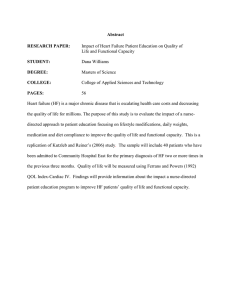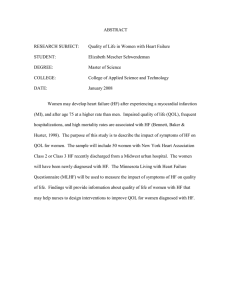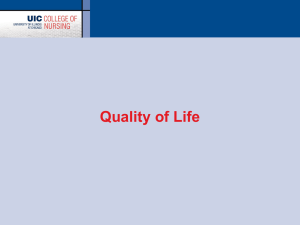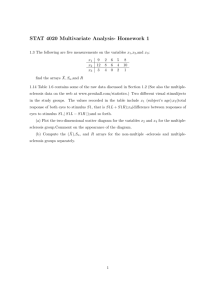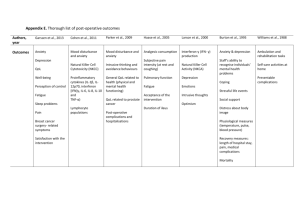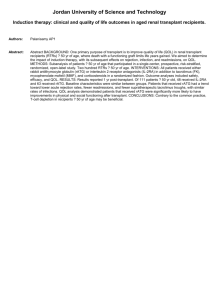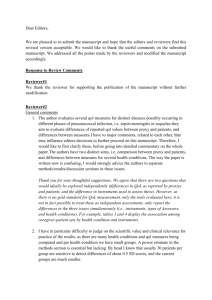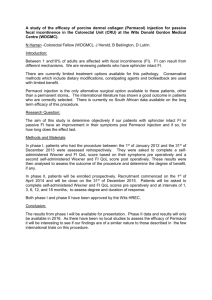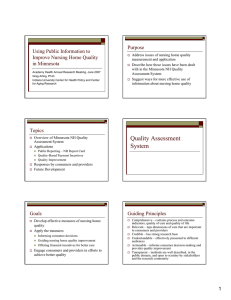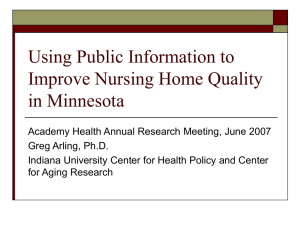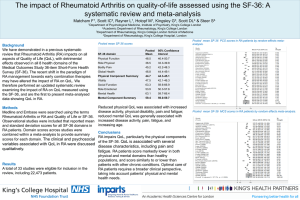Functional Capacity in Patients with Heart Failure Master of Science
advertisement
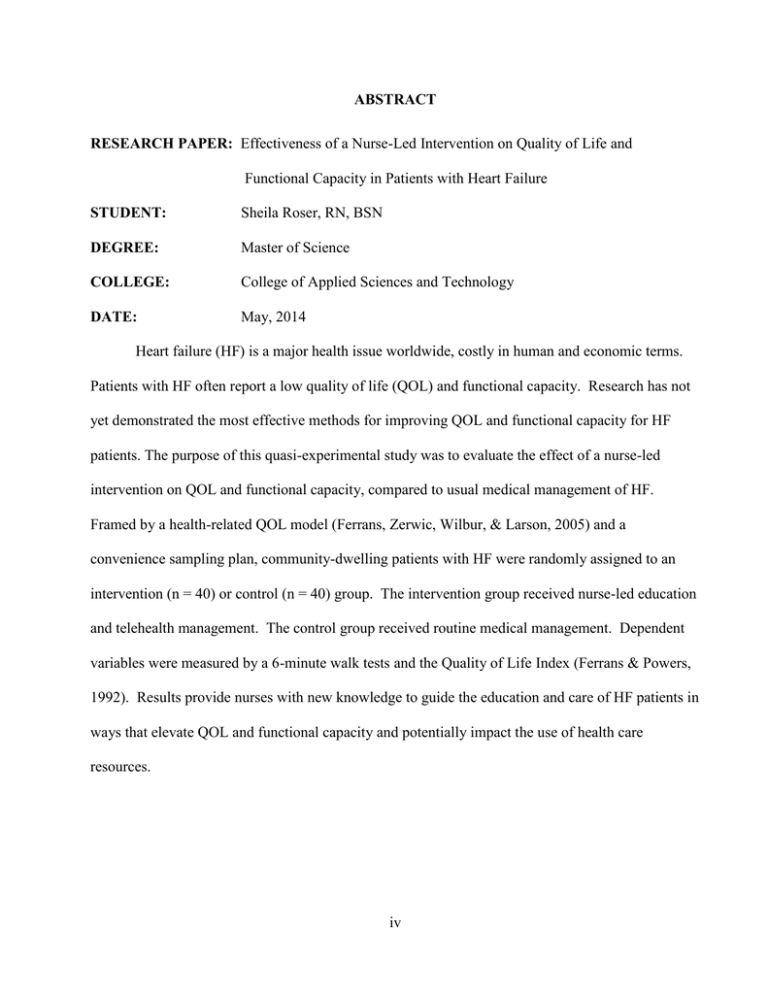
ABSTRACT RESEARCH PAPER: Effectiveness of a Nurse-Led Intervention on Quality of Life and Functional Capacity in Patients with Heart Failure STUDENT: Sheila Roser, RN, BSN DEGREE: Master of Science COLLEGE: College of Applied Sciences and Technology DATE: May, 2014 Heart failure (HF) is a major health issue worldwide, costly in human and economic terms. Patients with HF often report a low quality of life (QOL) and functional capacity. Research has not yet demonstrated the most effective methods for improving QOL and functional capacity for HF patients. The purpose of this quasi-experimental study was to evaluate the effect of a nurse-led intervention on QOL and functional capacity, compared to usual medical management of HF. Framed by a health-related QOL model (Ferrans, Zerwic, Wilbur, & Larson, 2005) and a convenience sampling plan, community-dwelling patients with HF were randomly assigned to an intervention (n = 40) or control (n = 40) group. The intervention group received nurse-led education and telehealth management. The control group received routine medical management. Dependent variables were measured by a 6-minute walk tests and the Quality of Life Index (Ferrans & Powers, 1992). Results provide nurses with new knowledge to guide the education and care of HF patients in ways that elevate QOL and functional capacity and potentially impact the use of health care resources. iv iv
